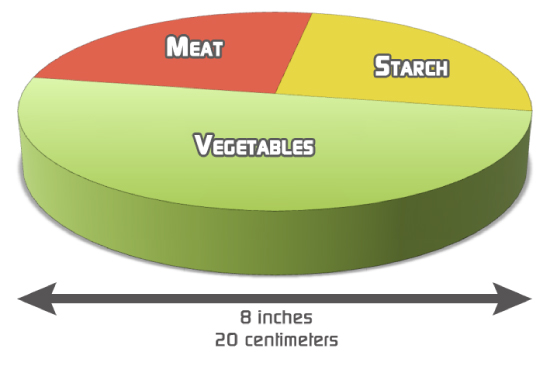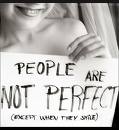Nutrition And Workout Mistakes You Need To Avoid
 Hey Folks! We’re continuing on with part 2 of my interview with nutrition and training consultant, Erik Ledin. If you happened to miss part 1 where Erik filled us in on what it takes to burn fat – and keep it off – as well as some key tips for anyone participating in a body transformation contest, then you’ll want to go back and have a read.
Hey Folks! We’re continuing on with part 2 of my interview with nutrition and training consultant, Erik Ledin. If you happened to miss part 1 where Erik filled us in on what it takes to burn fat – and keep it off – as well as some key tips for anyone participating in a body transformation contest, then you’ll want to go back and have a read.
Today, however, Erik shares with us some of the BIGGEST mistakes he finds in the way beginners approach nutrition and their workouts. You won’t want to miss this – So let’s get started…
************
Craig Ballantyne: So let’s go back to some of the beginner changes. What type of nutrition plan or changes do you recommend to someone starting from scratch?
Erik Ledin: Let me preface this by saying I think that the most important thing when it comes to fat loss is not necessarily what you eat but how much you eat.
One of the mistakes I just wrote about was the MISTAKE of quality over quantity. In the sense that you can still overeat the right foods and fat loss is really about eating the right amount of food for your own body.
Like you can be eating “clean” but still not eating the right amount for your body to support fat loss. That’s the first mistake. So I always say quantity trumps quality.
But I think for a long-term success that people have to move from the dieting mentality to the lifestyle mentality which then means you have to start eating the clean foods and eating healthy and whatnot so I think learning to make good choices. Lean proteins and a lot of fruit and vegetables and good fats like raw nuts and whatnot.
I still think there’s room for good stuff because you can kind of just factor it into how much you’re eating and have planned off-plan meals.
I think one of the BIGGEST MISTAKES that beginners make is that they think they gotta be perfect 100 percent and when they deviate by having one cookie they say, “That’s it, I suck. I might as well eat the whole bag.” And that one cookie’s not a problem. The whole bag is. It’s kind of an all or none mentality.
So I think it’s important even for a beginner to know how much they’re eating because otherwise at least if they want to kind of maximize the rate of progress if you don’t know how much you’re eating you can’t troubleshoot your program. You don’t know if you need to adjust something from a nutritional standpoint.
At the same time though understandably that beginners don’t really necessarily have the ability to do that. So if they’re going from  say this really shoddy type of eating plan, I think just actually cleaning things up and cutting out the processed foods. Eat a lot more one-ingredient type foods. One-ingredient foods. Like chicken’s a one-ingredient food. Cheez Whiz isn’t.
say this really shoddy type of eating plan, I think just actually cleaning things up and cutting out the processed foods. Eat a lot more one-ingredient type foods. One-ingredient foods. Like chicken’s a one-ingredient food. Cheez Whiz isn’t.
Craig Ballantyne: So do you recommend them using some type of software or actually measuring foods or what’s a nice way for a beginner to start getting a handle on it because I can imagine that most people just don’t understand portion sizes even if they’re eating the good foods.
Erik Ledin: That’s true. I detail it out in terms of quantities and there have been many occasions where people have said they really had their portions off. They were eating the right food but the portions were way off. They didn’t realize that four ounces was so small or something like that.
So I think www.fitday.com is a good resource. I mean it gets you in the ballpark. You can actually just plug in foods and the amount you’re going to eat and tally it up. First and foremost, whether you’re a beginner or not, you need to be eating the right amount of food.
Set your calories and then you can pretty much go from there. I think the most IDIOT-PROOF way to set up nutrition is set your calories, set your protein, get your six grams of fish oils and the rest is kind of up to you provided you stay within your caloric limits.
Craig Ballantyne: Okay. And then just do your best obviously to start making day-by-day little improvements probably in the quality of your food.
Erik Ledin: Yeah. Exactly. That’s the move from like diet to lifestyle. Right?
Craig Ballantyne: Yeah. So what about workout advice? Where should they start in general and then more specific if possible.
Erik Ledin: There’s a lot that can be learned online but if you’re actually brand new to weight training I think you’re in some senses better off getting some assistance in the gym at first.
I don’t work with people that are like brand spanking new because that’s a limitation to online training is that I can’t teach exercise technique. I can maybe show a demo or something like that but I can’t teach someone how to squat properly and some people just need that kind of hands-on experience.
There’s a ton of body weight exercises that go from easy to I’m finding extremely hard. And the list is exhaustive so starting off with body weight work and with exercise not kind of overdoing it.
So for example with Lyn, that previous client that I mentioned, she’s 240 pounds at 5’2”. I can’t have her doing sprinting pounding down a treadmill. Or running at the track doing 100s. She can still do a form of interval training though. Right? She can walk at three miles an hour and then walk at 3.8 and go back and forth and as her conditioning improves she can up the intensity which she’s been able to do.
So I think it’s important to actually make sure that you’re still working within your capabilities. If you go hard too fast I mean it happens every January. People go hog wild and make every change under the sun and three weeks later they quit so intensity is one of those things that’s kind of a learned skill.
I think a beginner can get away with training more often only because they haven’t really learned how to train hard. If you ever watch someone who’s going into the gym they don’t know like eight reps to failure is. And failures probably would have been 16 when they feel it and it starts to actually hurt. So the sets over so.
KEEPING IT SIMPLE. Body weight workouts. Compound movements. I’d probably teach a lot of that. Sticking with the basics pretty much.
Craig Ballantyne: So basically you would probably agree 100 percent that people really shouldn’t get too stressed about what workout they choose right away or if they’re able to complete a workout. In fact they should probably do less. Because most of the results at the start are going to be coming from the nutritional changes that they make?
Erik Ledin: Right. No doubt.
Craig Ballantyne: So aside from Lyn can you tell us about maybe another really great beginner success story? And what were the KEYS to their SUCCESS? Or even if you just want to break down what finally helped her achieve the results that she’d been looking for, for such a long time.
Erik Ledin: Okay. I have another client and her name is Sheryl. Kind of the same idea. A 200-plus pound person and I’ve  actually sent each of these persons questions for an interview for a future newsletter so it’s kind of interesting this question came up but I think that for both of them one of the biggest things was simply recognizing that you don’t have to be perfect.
actually sent each of these persons questions for an interview for a future newsletter so it’s kind of interesting this question came up but I think that for both of them one of the biggest things was simply recognizing that you don’t have to be perfect.
This is one of the things that we had just talked about, Lyn and I about, that all or none mentality. That it’s not a diet. She always tried to lose weight with a goal in mind and then once that goal or date hit it was like, “okay, I have nothing to do this for any more.”
So it stayed in that diet mentality and didn’t move to the lifestyle mentality. She has A LOT OF SOCIAL SUPPORT which makes a huge difference I think. Whether it be in her family or in an online community. She’s pretty ACTIVE IN A FORUM that I run and she also blogs her journey on my web site. So she gets a lot of support there. As does Sheryl. They’re both actually doing that so.
They’ve also tried a lot of things that haven’t worked.
The 30 pounds in 30 days kind of things and all these advertisers and marketers or even self-help companies, they sell hope. Right? I mean all the before and afters. They sell hope and that’s why they do so well. So everyone wants these things, these claims, to be real. And oftentimes it’s obviously a misguided approach.
But when you have someone who starts – this isn’t a quick fix thing. They start eating well. There’s no real magic to fat loss or nutrition. I mean I have them eating well. I have them eating enough. I have them eating a wide variety of foods and they feel good. They have a lot more energy. They sleep better.
It’s not gimmicky. It allows for some fun foods. They have meals off plan that are allowed so there’s no guilt associated with “cheating”. It’s almost like a reward so it’s positive reinforcement. About doing a good job.
From a training standpoint, I just think that it’s fun. You keep the training fun. You don’t have them going into the gym for two hours, five days a week on the step mill. I mean that just gets old really fast.
Short workouts. Short, relatively frequent workouts.
Craig Ballantyne: So are those a couple of big differences that they weren’t doing before when they weren’t succeeding? Was one, they kind of understand now how much they’re eating so they understand the portions a bit better and also that they’ve learned that it doesn’t have to be a puritan lifestyle. There can be a little bit of enjoyment in what they eat and also in how they work out. Are those kind of two of the biggest changes that you’ve made for them?
Erik Ledin: Yeah. I think so. That all or none mentality. You do not have to be perfect.
Craig Ballantyne: How long can people last on that all or none mentality for nutrition? That they think they can’t eat anything bad? How long before that entire thing goes sour?
Erik Ledin: When they go from perfect to not perfect?
Craig Ballantyne: Yeah.
Erik Ledin: Not very long. I have a couple clients that are pretty much flawless but I don’t really preach the need to be flawless. I would say that dietary adherence is the biggest issue for every dieter or everyone seeking out fat loss. So it doesn’t last very long and anyone who tries to do that is going to set themselves up for failure.
Continue reading part 3 of my interview with Erik Ledin.